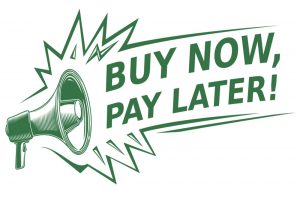Buy Now Pay Later (BNPL) technology has taken the retail world by storm. With more and more retailers adopting this option, more consumers are getting used to using it as a payment method. Now, it appears that BNPL providers are eying the rental and healthcare markets, offering alleviation of big upfront payments in those areas.
Until last year BNPL was mostly only available for consumer goods, but now, companies are looking at other ways to integrate these types of payment options for their services. One such example comes from the Wasatch Property Management’s apartment complexes, which found an interesting solution to help its residents who were likely to struggle to pay rent due to the economic downturn. Through an app called Flex, tenants would be able to pay their rent in installments. Advertising “small, stress-free payments,” the service sold to tenants the benefit of having more money longer without major priorities like rent stifling other important payments. The catch, however, was a monthly $20 fee.
Flex is a great example of a BNPL service that could enter these essential services and markets to alleviate the financial burdens for people struck with emergency healthcare payments or unable to afford rent at short notice. If the installments are honored, consumers would have more financial control and freedom with their cash monthly to meet different payments at their pace. Where healthcare is concerned, families will be able to afford the care they need for themselves and their loved ones, without the stress of coming up with the funds upfront in order to receive it.
However, as with all BNPL scenarios, there are as many risks as there are benefits. Consumers have reported that BNPL has oftentimes encouraged them to spend more under the guise that they would have more financial control over their cash on hand. This could pose the danger of significant fees if people were to be late on paying larger sums. In the case of Flex, the monthly fee would also mean that rent essentially goes up by $20 a month in order for renters to afford the privilege of making split payments.
The entry of BNPL into essential spaces such as housing and healthcare will be a major development for advocates of the payments method - especially millennials who have become accustomed to fintech as their primary financial service. However, what remains to be seen is whether or not BNPL companies will service these sectors with the same fees and payments structures that they do retail, and if this will truly help its consumers, or hinder them in the long term.
























